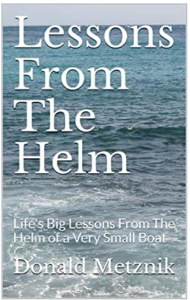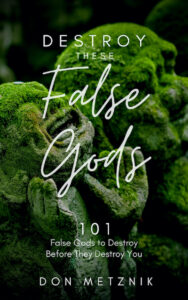Life cannot be lived without trust. But who can you trust?
Much trust is based on the messages we perceive: words, images, impressions. We are bombarded to excess with all of these. Which ones are we to believe? How do we test anything for truth, legitimacy, or honesty?
Truth in messaging in not found in the medium (with regrets to Marshal McLuhan). The well-choreographed presentation is not necessarily the message. Likes and followers are not the message. The intent is not the message. Even the words are not the message. The message is the person. But wait…it’s not the attractiveness of the person, nor style, nor charm.
The person to believe—to trust, to set your life upon—is the one whose life is lived out in actions. Action is the testimony of truth (Barry Grant Marsh).
A Brief Background on Disinformation
The disinformation, lies, and manipulations we experience today were well known even in ancient times, though they were less elaborate.
For example, ancient Greece in the fifth and fourth centuries BC was known for its sophists who were paid teachers specializing in subjects such as philosophy and moral teaching. They were proficient in rhetoric, a skill which is designed to persuade and impress but which was often associated with a lack of sincerity or meaningful content; they often reasoned with clever but fallacious arguments.

Saint Paul was a gifted speaker who, once he was converted to be an apostle for Christ, intentionally avoided rhetoric so that his listeners would be moved by Christ’s life and sacrifice and not by his words. In 1 Corinthians 1:7 Paul wrote, “For Christ did not send me to baptize, but to preach the gospel—not with wisdom and eloquence, lest the cross of Christ be emptied of its power.”
Knowing what was in men’s hearts, Christ set this simple standard; All you need to say is simply ‘Yes’ or ‘No’; anything beyond this comes from the evil one. Matthew 5:37 NIV
Action is the Testimony of Truth
The essence of this message is this: trust only those who act on what they say, who do not lie or deceive with words but convince with actions.
The test, therefore, in the quagmire of today’s messaging, is to believe the fruit—the visible action—not the hyped presentation. Look for the fruit from good people—the good “trees” that Paul describes:
“Make a tree good and its fruit will be good, or make a tree bad and its fruit will be bad, for a tree is recognized by its fruit. Matthew 12:33 NIV
Taste and See
Trusting requires actions of its own. Psalm 34:8 instructs us to “Taste and see that the Lord is good; blessed is the one who trusts in Him.” When considered in the original Hebrew, taste and see may be translated as to perceive and to intently look at, to study. (ibelieve.com/yourdailyprayers). Both are action words that invite us to actively seek and experience God’s goodness and not remain passive and inactive. Another way to express this is to taste the fruit of God’s goodness.
So, Who Do You Trust?
Who has lived a life that perfectly mirrors his or her words, and whose being is intended for the incessant service of others, not self-service? Who demonstrates unfailing goodness, absolute faithfulness, and unending love?
The Psalmist knew the answer when he wrote, “It is better to take refuge in the LORD than to trust in humans” (Psalm 118:8). This is not meant as a blanket refusal to trust anyone, for we rely on trust, in the form of hopeful expectation, to function daily. Rather, it is a caution as to where one plants ultimate trust. People, everyone included and however well-intentioned, are prone to temptations and will fail at some point and at some time. This is the human condition. What the Psalm points to is the only person in whom trust can be planted with the absolute certainty that it will never fail.
Who do you trust?


